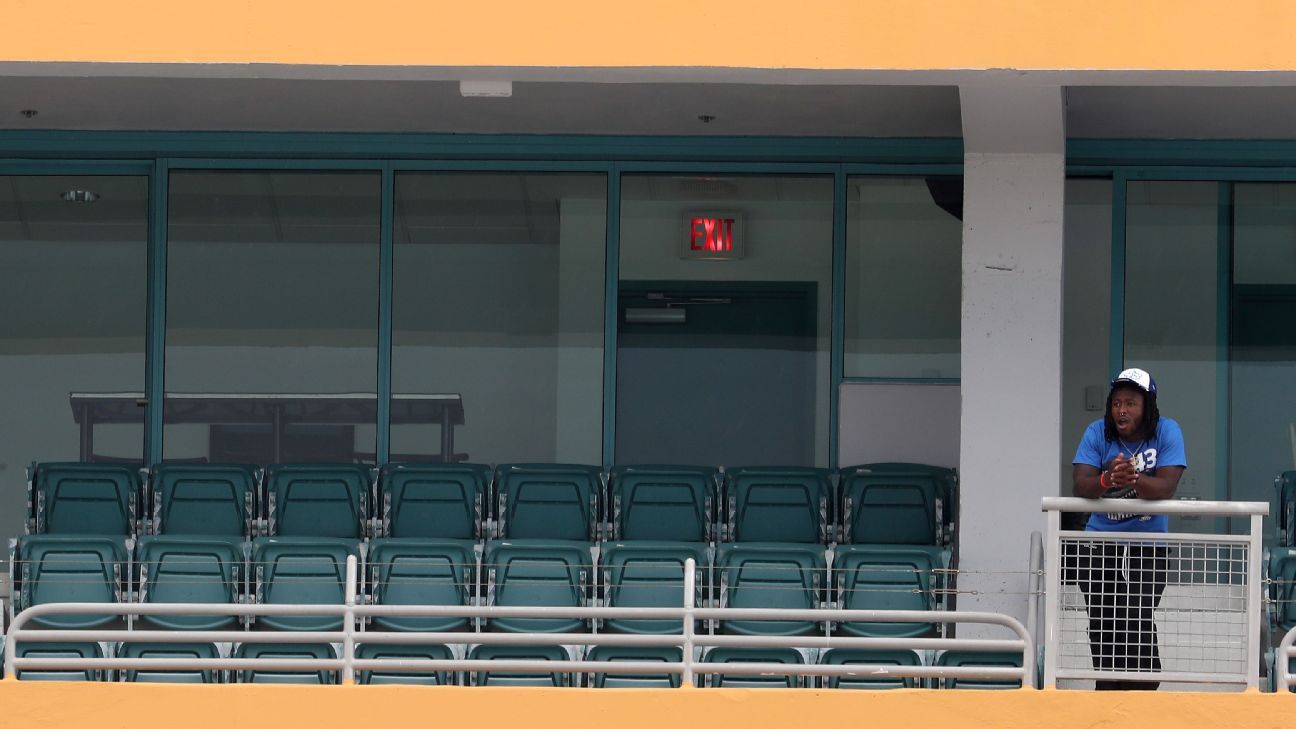New Orleans Saints running back Alvin Kamara became one of NASCAR’s newest fans this week, after the organization banned Confederate flags from its racetracks.
Kamara saw his first race as an invited guest of NASCAR on Sunday at the Dixie Vodka 400 at Homestead-Miami Speedway after he tweeted his support for the sport and driver Bubba Wallace earlier in the week.
i love y’all 🥰 @NASCAR pic.twitter.com/GPGNrcWn00
— Alvin Kamara (@A_kamara6) June 10, 2020
See y’all tomorrow @NASCAR ❤️ @BubbaWallace wassup?!!! pic.twitter.com/YsOYnnUQkX
— Alvin Kamara (@A_kamara6) June 13, 2020
Kamara, who trains in Miami in the offseason, was decked out in gear supporting Wallace, NASCAR’s only black driver, who pushed for the policy change and debuted a Black Lives Matter paint scheme on his No. 43 Chevy this week.
“What’s right is right, and what’s wrong is wrong, and I think Bubba’s a testament to that,” Kamara told ESPN’s Marty Smith in a Zoom conversation from the track.
Kamara, who grew up outside of Atlanta, said he didn’t realize before this week “how deeply rooted the Confederate flag was” around NASCAR events. He learned more about the history this week and spent time talking to NASCAR president Steve Phelps.
“With them being able to, I guess, step away from that, that’s a huge step. And flipping the script, just rewriting the narrative on what this sport is and what it stands for,” Kamara said. “There’s obviously some people that are against that decision of removing the flag, and I think there’s way more people that are for that decision. Because I think there’s a certain stigma on the type of fans that support this sport, and there’s some bad ones. But I don’t think the bad ones represent all the good ones.”
Kamara, who played college football at Tennessee, said he was familiar with Wallace because Wallace is a Volunteers fan who visited the school when Kamara was there. Wallace’s mother was a track athlete at Tennessee. But Kamara admitted that his experience with NASCAR was limited to occasionally flipping on a race, not understanding what was going on and switching it off.
“But being here today, I’m learning a lot. It’s definitely a different experience in-person,” Kamara said. “Obviously, we’re in corona protocol right now, so I’m not even getting the full experience. But I’m enjoying it. … I can’t even imagine it being just full-out 160,000 people here and everything.”
Kamara, whose mother is from Liberia, has been an advocate for racial equality and social justice. He shared some of his experiences in the wake of George Floyd’s killing last month.
Im a 24 year old black man from Atlanta. Mother from africa and an illegal alien for almost 30sum years until 15 months ago. I’ve seen racism and experienced social injustice personally. maybe even on a deeper level because my mother had a foreign accent.
— Alvin Kamara (@A_kamara6) June 4, 2020
This is the reality we live in. This isn’t about pinning black against white, but more so about the narrative that is created when a black person speaks and when a white person speaks. Pay attention. This is why we protest! This is why we take a knee! To be HEARD. Nothing more. pic.twitter.com/vMQ2QvvaNN
— Alvin Kamara (@A_kamara6) June 4, 2020
Kamara was one of many Saints players who acknowledged being “disappointed and hurt” two weeks ago, when teammate Drew Brees said that he will never agree with anybody disrespecting the American flag by protesting during the national anthem. Brees later apologized and vowed to be a leader for the black community in the movement toward equality and justice, and he backed up his words by sharing what he had learned in a message to President Donald Trump.
Kamara was one of 10 Saints players who sat on the bench during the national anthem during Week 3 of the 2017 season after Trump levied harsh criticism against players who protested during the anthem. For the remainder of that season, Saints players knelt and locked arms before the anthem, then stood during the anthem.
“It’s a touchy subject,” Kamara said when Smith asked his stance on kneeling during the anthem. “But now, where the world is shifting in climate of social injustice and race and all these things, a plethora of things that are going on, I think people are taking the time to understand what the meaning of kneeling during that time is. It’s not to disrespect the flag, but it’s to stand up for what you believe in, as far as the social injustices that are going on, and like I said, the fight for inequality when it comes to race.
“It’s a touchy subject, but I’m happy that there’s a lot more attention being drawn to it, and a lot of people are taking the time to understand what’s going on.”
